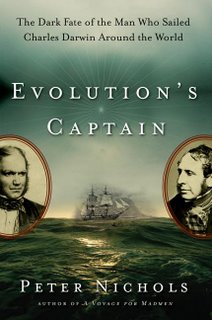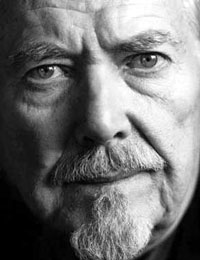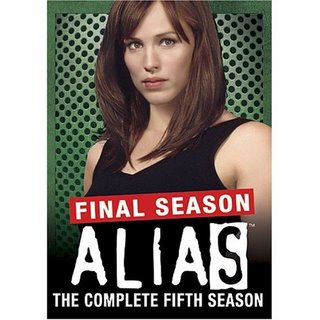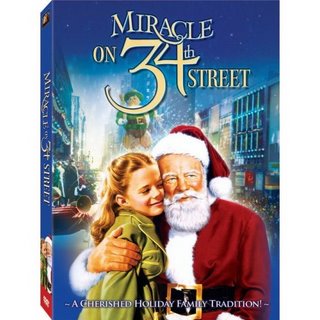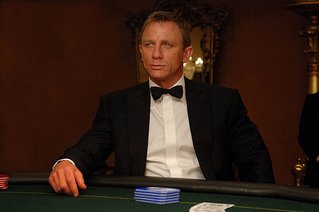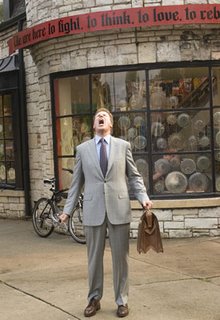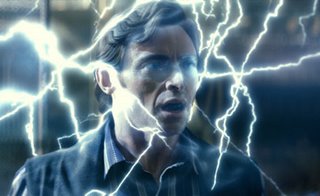Superman II: The Richard Donner Cut
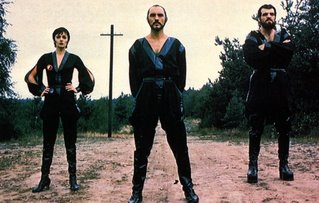
I write film and TV reviews at DVDFanatic.com. Here are synopsis' and links to those reviews.
In anticipation of viewing the never-before-seen Superman II: The Richard Donner Cut, I rescreened the original. It had been years since I’d seen it and I wanted to be able to perform my duties accurately and fairly. I remembered the theatrical release of Superman II as a thrill and a joy so I wasn’t really surprised when I had much the same reaction when watching it again this week.
I came to this new version, not with trepidation or fear, but with the sort of excitement that one would expect when something you already like has been made even better.
What I’m about to say may be tantamount to heresy to the fanboys out there, but I confess that Richard Donner’s cut of Superman II did not tip the planet from it’s axis, did not stop time, did not, in any perceptible way, change my life.
I’m sorry.
Perhaps some explanation is needed...
The original Superman is only half a movie. Director Richard Donner (The Omen, The Lethal Weapon quadrilogy, Ladyhawke) always intended to make Mario Puzo’s (The Godfather) massive script into a single film. But when running times and budgetary constraints made a single film impossible, the project was broken in half and turned into two films that were to be shot concurrently.
Superman was rushed into production and then release where it opened to wide critical and popular acclaim. With only a quarter of what was to become Superman II left to film, Donner still found himself over budget, over schedule and suddenly at odds with producers Alexander and Ilya Salkind over creative elements of the story, namely the addition of camp humor that Donner felt was wholly incongruous with the tone of the film.
After screen-legend Marlon Brando was kicked off the film and his scenes were hacked from screenplay--the result of haggling with the producers over his cut of the film’s profits--Donner ardently insisted that Brando’s crucial contributions remain. Rather than take his opinions into account, the Salkinds instead shocked everyone by sacking their popular director as well, and brought Richard Lester in to replace him.
Donner’s banishment angered many of the cast and crew who left with him, including actor Gene Hackman (Lex Luthor) who refused to shoot any more scenes. As a result, Lester took the reigns of the film and, while he kept large chunks of Donner’s work, he reshot major portions while completely rewriting others two years after they were originally filmed. The result was more to the liking of the Salkinds--campier and without a hint of Marlon Brando. Though Donner was offered co-directing credits, he turned them down after screening the first few minutes of the film and walking out in revulsion.
When Superman II opened, it, like its predecessor, was hailed as a wonderful work of escapist cinema. But many knew that the film they were seeing was not Donner’s original vision, and therefore, the far superior version. That was lost to them forever.
Until now.
To cast a wide enough net to synopsize both films, Superman II opens just after the first film ends, in which Lois Lane discovers Clark Kent’s secret. When Superman discovers the only way he can be with Lois is to give up his superpowers, he does so in the name of love. Meanwhile, the trio of Krytonian malcontents--General Zod, Ursa and Non--escape the one-dimensional floating prison into which Jor-El trapped them in the first film and arrive on Earth, intent on destroying all who resist their rule. Suddenly, Superman must try to retrieve his powers and save the world from his fathers’ nemesis’, all of whom have identical powers to his.
So what’s changed?
(WARNING: SPOILERS AHEAD -- READ AT YOUR OWN RISK)
• Whereas Lester’s version of the evil trio’s trial and banishment from the first film begins with them being caught in the act and is actually reedited so as to ignore that fact that Marlon Brando had any part in it whatsoever, Donner’s version reconstructs the scene as it ran in the original Superman while using different camera angles.
• Whereas Lester wrote a completely different beginning set in a Paris under siege from terrorists, Donner’s film moves directly from the trio’s banishment to their fortuitous escape. In Lester’s version, they escape after a nuclear detonation (the ticking terrorist bomb which Superman tossed into outer space) breaks them free. In Donner’s imagining, one of the nuclear missiles Lex Luthor stole and Superman redirected out of the atmosphere does the same job.
• Whereas Lester’s version left Paris and pretty much moved straight to Niagara Falls where Clark and Lois pose as newlyweds in order to expose a hotel racket taking advantage of vacationers, Donner sets up a scene in which Lois becomes convinced Clark is actually Superman in disguise. Attempting to prove it, she flings herself out of the window, secure in the knowledge that Clark will have to swoop in as Superman and rescue her. Rescue her he does, but not in any way that gives away his secret identity. This scene would be re-written by Lester and appear later in his version of the film when Lois throws herself into the rushing water.
• Whereas Lester’s version was re-written to have a clumsy Clark Kent inadvertently reveal his true identity after accidently falling into the Honeymoon suite’s fireplace, Donner’s original concept for the scene involved Lois shooting Clark at point-blank range to prove he was invulnerable. This was Donner’s intention all along though the scene had yet to be shot when he was kicked off. So how did he pull it off for this DVD release? Luckily this is the scene Christopher Reeve and Margo Kidder first performed as screen tests for their parts. By skillfully cutting the two tests together, Donner has his scene. Crude, but effective.
• Whereas Lester gives Superman a conversation with his long-dead mother in the Fortress of Solitude before he decides to give up his powers, Donner’s version was shot opposite Marlon Brando who here rails against his son’s irresponsibility and glares wrathfully at Lois as his son blasts him in return. While Lester’s version has the great double-exposure moment as Superman vanishes in the chamber and Clark Kent steps out, Donner’s exchange between father and son is, without a doubt, a far more powerful and stunning piece of filmmaking.
• Whereas Lester’s version has the unholy trio defacing Mt. Rushmore and putting their own images in the place of the presidents, in Donner’s version, they topple the Washington Memorial.
• Whereas Lester’s version of the climactic battle in the Fortress of Solitude is accompanied by silly super-weapons and flights-of-fancy, Donner’s version is far more pared down, raw, and cuts straight to Superman’s delicious double-cross.
• Whereas Lester’s version uses a telepathic kiss to erase Lois’ memory of Clark Kent’s alter ego (an element actually in keeping with the original comic books), Donner’s version utilizes the same technique Superman used in the first film--flying around the world so quickly as to turn time back upon itself--to set everything back as it was before, including Lois’ memory. Shortly before Donner was catapulted from the film, this was the be the second film’s ending, not the first’s and was to come after General Zod and his minions throw Lois to her death down one of the crevasses in Superman’s Fortress of Solitude. When it was decided that it would fit better at the end of the first film if Lois were to die in the earthquake, Donner planned on coming up with another ending to the predicament in the second film--a decision he never had the opportunity to make on account of his ousting.
What should be all too obvious at this point is that the single greatest difference between Lester and Donner’s versions is the inclusion of Marlon Brando. And it is here that all those who lambasted Lester’s cut as a travesty and Donner’s as the superior version are utterly and absolutely correct. You simply don’t remove scenes involving one of the greatest actors in American history and threading a plot line that was fundamental to the story, and hope that it won’t go unnoticed.
The scenes where Donner uses Brando are unarguably the stronger and make for a far more dramatic and compelling film. That said, much of the rest of Donner’s film feels cobbled together, fraught with holes and patched together with twine and bailing wire. Perhaps this is not his fault. After all, this cut is comprised of his unused footage, some of Lester’s footage, and screen tests. And Donner readily admits that there are scenes he was never able to film that would have fleshed this version out and made it more fluid. I realize he can only do so much with what he has and what he has done with what he has is extraordinary. However, critiquing this film singularly on its own merits, it doesn’t flow or have any sense of narrative balance.
Furthermore, I actually agree with some of Lester’s alterations. Donner’s scene where Lois figures out who Clark is and risks life and limb to prove it, is a great scene and far superior to what replaced it, but comes far too early in the film to sustain the drama for the remainder of the film (Lester’s version comes midway through).
Donner carries on throughout this DVD about how much of a horrible travesty the theatrical release of Superman II was, but let’s face it, that is simply not true. As much as Donner complains and as much as he has reason to, the Lester version is not a grotesque aberration of his vision. It may not have been Donner’s original concept and that concept may indeed have been the far more muscular, but -- and this is no affront to him or his plans -- Lester’s release is still a fine film and stands up quite well all on its own. Yes, Lester’s Superman II is far too campy, but it also brings a playfulness that really works and rings true.
Truth is, I actually miss some of Lester’s contributions. They worked. Some quite well. Let’s face it, the original version is not at all bad. Frankly, I’d love to see Superman II: The Brandon Fibbs’ Cut, a hybrid taking the best of both versions.

To read the full review, click here.


